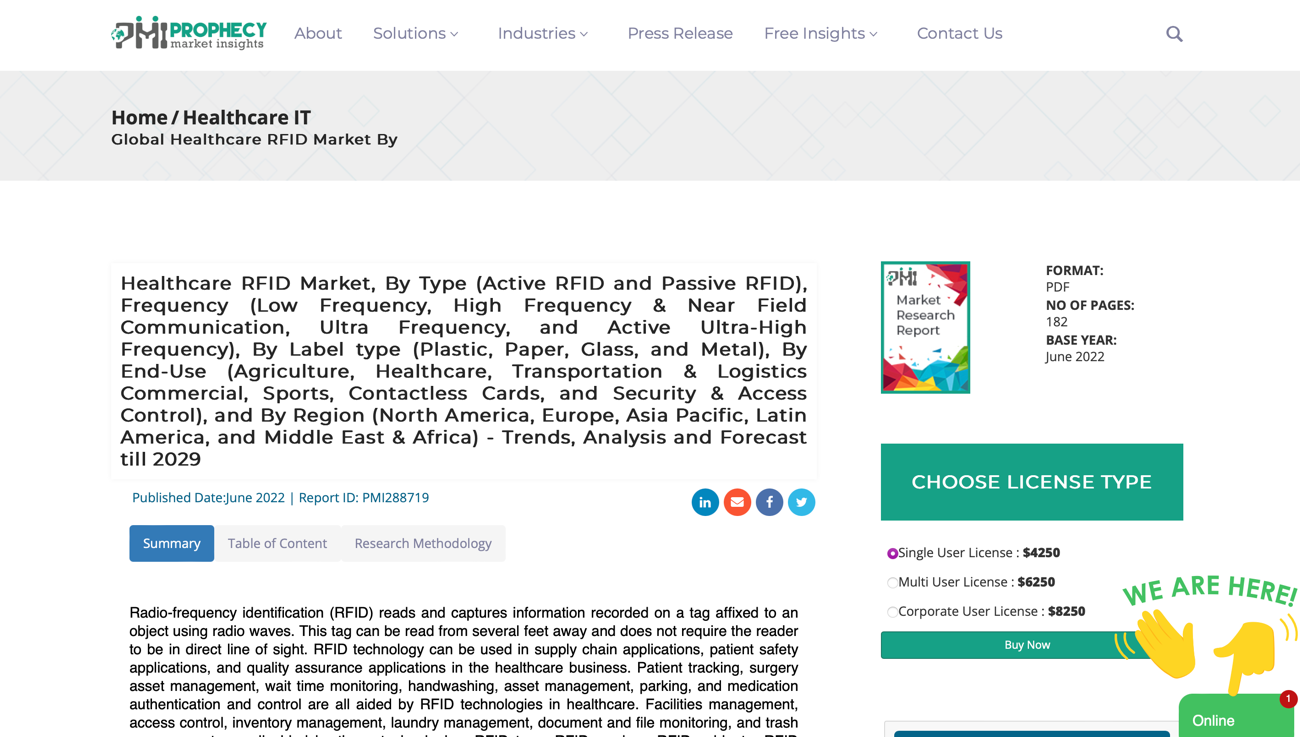
Radio-frequency identification (RFID) technology in healthcare, emphasizing its applications in supply chain management, patient safety, and quality assurance. It highlights various applications such as patient tracking, asset management, medication authentication, and access control, facilitated by RFID components like tags, readers, cabinets, middleware, and printers.
The healthcare RFID market is projected to reach $5.90 billion by 2030, with a compound annual growth rate (CAGR) of 13.3%. Factors driving this growth include increased demand for RFID to improve operational efficiency, combat drug counterfeiting, reduce costs, and address medical device theft. However, challenges such as a lack of understanding of RFID, existing barcode systems, and standardization issues hinder market growth.
The market segmentation includes product type (active RFID and passive RFID), frequency, label type (plastic, paper, glass, metal), and end-use (agriculture, healthcare, transportation, etc.). North America dominates the market due to collaborations in the medical device industry and advanced healthcare infrastructure. Meanwhile, the Asia-Pacific region is expected to witness significant growth, driven by improving healthcare infrastructure and concerns about patient safety and medical device tracking.
Key players in the healthcare RFID market include Avery Dennison Corporation, Alien Technology LLC, Allflex USA Inc., Honeywell International Inc., GAO RFID Inc., Impinj Inc., Mobile Aspects Inc., RF Technologies, and Radianse Inc.
Overall, the transformative impact of RFID technology in healthcare, driving operational efficiency, patient safety, and inventory management while outlining the market’s growth drivers, restraints, and regional dynamics.
